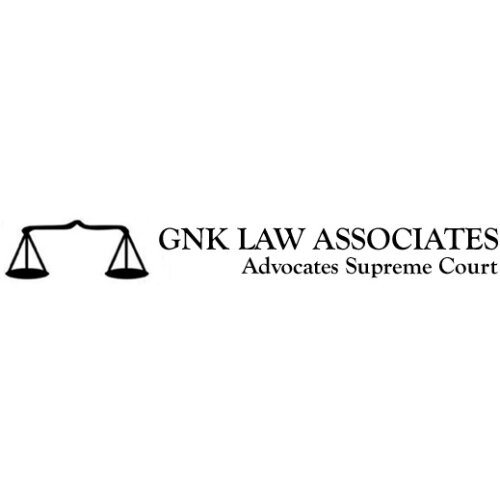Best Bankruptcy Lawyers in Delhi
Share your needs with us, get contacted by law firms.
Free. Takes 2 min.
List of the best lawyers in Delhi, India
About Bankruptcy Law in Delhi, India
Bankruptcy law in India, including Delhi, is primarily governed by the Insolvency and Bankruptcy Code, 2016. This comprehensive code consolidates and amends laws relating to reorganization and insolvency resolution, aiming to facilitate a time-bound resolution process. In Delhi, as in the rest of India, bankruptcy proceedings aim to aid both individuals and financial institutions in distress by initiating processes that help manage defaults and improve the ease of doing business. The code strives for the maximization of asset value along with equitable distribution to creditors.
Why You May Need a Lawyer
There are several situations where seeking legal assistance in bankruptcy matters becomes necessary. Individuals or businesses facing financial distress and incapacity to meet debt obligations can benefit enormously from early legal intervention. This can include understanding eligibility for filing bankruptcy, knowing potential legal ramifications, handling disputes with creditors, or structuring a viable debt repayment plan. A lawyer's guidance is crucial to navigate complex legal requirements, attend negotiations or court proceedings, and work towards the most favorable outcome.
Local Laws Overview
Delhi, being the national capital, has a well-structured legal system in place for handling bankruptcy cases, largely dictated by the national Insolvency and Bankruptcy Code. Key aspects include the process of initiating insolvency proceedings, either by the debtor or the creditor, role and appointment of Insolvency Professionals, formation of Creditors' Committee, and the approval process of a resolution plan. Specific provisions also address cross-border insolvency and voluntary liquidation for corporate and non-corporate persons.
Frequently Asked Questions
What is the difference between bankruptcy and insolvency?
Insolvency is a financial state where a person or company cannot meet their debt obligations. Bankruptcy is a legal declaration of insolvency, involving formal proceedings to seek relief from debt.
Who can file for bankruptcy in Delhi?
Both individuals and businesses that are unable to pay their debts can file for bankruptcy under the Insolvency and Bankruptcy Code, 2016.
How does filing for bankruptcy affect my assets?
When you file for bankruptcy, an assessment is made of your assets to repay creditors. Some assets may be protected, but others may be sold as part of the resolution process.
What should I do if I'm being harassed by creditors?
If you're being harassed by creditors, consider contacting a lawyer immediately. They can help you understand your rights and may help you file for a court order to stop harassment.
Can I keep any property after declaring bankruptcy?
Certain types of property are often exempt from bankruptcy estate, allowing you to retain them. The specific exemptions depend on the applicable legal provisions.
What role does an insolvency professional play in bankruptcy proceedings?
An insolvency professional manages the resolution process by taking control of the debtor's assets, evaluating claims, and facilitating the approval of a resolution plan.
How long does the bankruptcy process take?
The timeline can vary, but the Insolvency and Bankruptcy Code mandates a resolution process to be completed within 180 days, extendable by 90 days in complex cases.
What is the impact of bankruptcy on credit scores?
Filing for bankruptcy can severely impact your credit score, making it difficult to secure loans or credit in the future. Rehabilitation of creditworthiness is essential post-bankruptcy.
Are there alternatives to bankruptcy?
Yes, alternatives include negotiated settlements with creditors, asset sales, or informal arrangements like debt restructuring or repayment plans.
Where can I find legal advice on bankruptcy?
Legal advice can be sought from professional law firms specializing in bankruptcy, or from individual practitioners who handle insolvency cases. Online resources and consultations may also be available.
Additional Resources
For further assistance in bankruptcy matters, consider reaching out to:
- The Insolvency and Bankruptcy Board of India (IBBI) for authoritative guidelines and updates;
- The Delhi High Court for jurisdictional insights;
- Professional bodies like the Institute of Chartered Accountants of India (ICAI) for accredited insolvency professionals;
- Local legal aid societies that may provide free or affordable services.
Next Steps
If you require legal assistance in bankruptcy, start by consulting a qualified insolvency lawyer. Prepare all financial documents, debt records, and any correspondence with creditors to present a comprehensive case to your lawyer. Look at various law firms or independent practitioners specializing in insolvency for consultations and explore their success rates, client reviews, and fee structure before making a decision. Remember, timely and informed actions can make a significant difference in bankruptcy proceedings, so it's advisable to seek legal counsel as early as possible.
Lawzana helps you find the best lawyers and law firms in Delhi through a curated and pre-screened list of qualified legal professionals. Our platform offers rankings and detailed profiles of attorneys and law firms, allowing you to compare based on practice areas, including Bankruptcy, experience, and client feedback.
Each profile includes a description of the firm's areas of practice, client reviews, team members and partners, year of establishment, spoken languages, office locations, contact information, social media presence, and any published articles or resources. Most firms on our platform speak English and are experienced in both local and international legal matters.
Get a quote from top-rated law firms in Delhi, India — quickly, securely, and without unnecessary hassle.
Disclaimer:
The information provided on this page is for general informational purposes only and does not constitute legal advice. While we strive to ensure the accuracy and relevance of the content, legal information may change over time, and interpretations of the law can vary. You should always consult with a qualified legal professional for advice specific to your situation.
We disclaim all liability for actions taken or not taken based on the content of this page. If you believe any information is incorrect or outdated, please contact us, and we will review and update it where appropriate.










